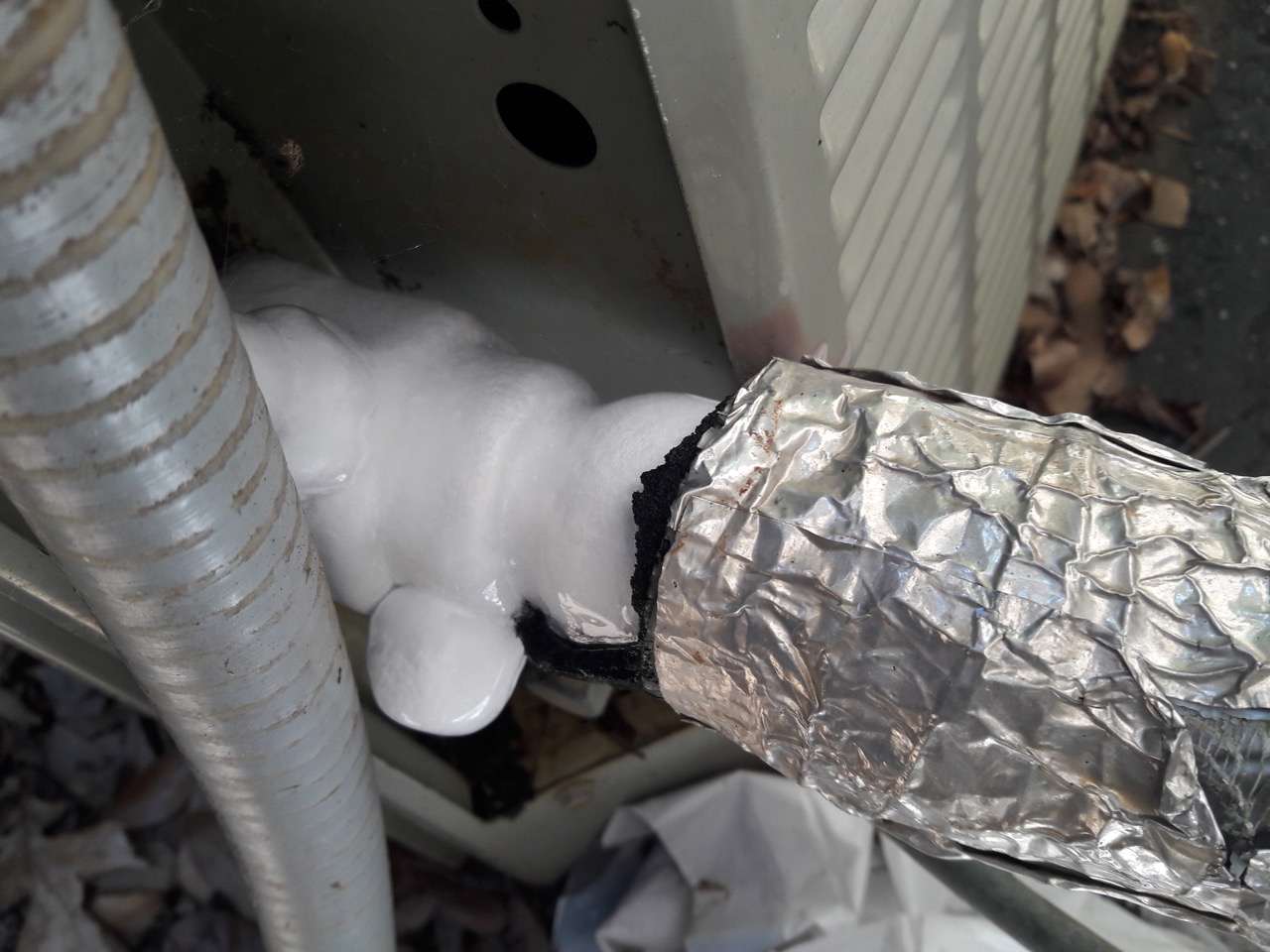

Articles
Why Is My AC Freezing Over
Modified: November 1, 2024
Discover why your AC is freezing over with these informative articles. Learn how to prevent and fix this common issue to keep your home comfortable.
(Many of the links in this article redirect to a specific reviewed product. Your purchase of these products through affiliate links helps to generate commission for Storables.com, at no extra cost. Learn more)
Introduction
Having an air conditioning system is a blessing, especially during hot summer months. However, there are times when your AC unit may start freezing over, causing inconvenience and discomfort. Understanding why your AC is freezing over is crucial in order to address the issue and prevent further damage to the system.
In this article, we will explore the common causes of an AC freezing over and provide practical solutions to prevent this problem from occurring in the future. By the end, you’ll have a better understanding of why your AC is freezing and what steps you can take to resolve the issue.
Key Takeaways:
- Regularly cleaning or replacing air filters every 1-3 months is crucial to prevent AC freezing by ensuring proper airflow, improving energy efficiency, and maintaining healthy indoor air quality.
- Scheduling professional maintenance for your AC system at least once a year helps prevent freezing issues, optimizes performance, extends the unit’s lifespan, and ensures safe operation.
Read more: Why Is My Window AC Freezing Up
Causes of an AC Freezing Over
When your air conditioning unit freezes over, it indicates that there is a problem within the system. Understanding the underlying causes can help you troubleshoot and resolve the issue. Here are some common reasons why an AC freezes over:
- Insufficient Airflow: Limited airflow is one of the primary reasons for an AC freezing over. When the airflow is restricted, warm air cannot circulate effectively, leading to the accumulation of condensation on the evaporator coil. This results in the coil freezing over time.
- Low Refrigerant Levels: Refrigerant is responsible for absorbing heat from the air and cooling it down. When refrigerant levels are low, it causes a drop in pressure within the system, leading to the evaporator coil becoming colder than it should be. This can cause the coil to freeze.
- Dirty or Blocked Air Filters: Air filters are vital in maintaining proper airflow throughout the AC system. If these filters are clogged with dirt, dust, or debris, it restricts the airflow, causing the evaporator coil to become excessively cold and freeze over.
- Faulty Thermostat: A malfunctioning thermostat can lead to inconsistent temperature regulation. If the thermostat fails to accurately detect the temperature and signals the AC to run constantly, it can cause the evaporator coil to freeze.
- Blocked or Restricted Vents: The vents in your home play a crucial role in allowing the conditioned air to circulate freely. If the vents are blocked or closed, it can impede the airflow, leading to the freezing of the evaporator coil.
- Problems with the Evaporator Coil: Over time, the evaporator coil in your AC unit may become damaged or corroded. When this happens, the coil may not function properly, causing it to freeze over.
- Incorrectly Sized AC Unit: If the AC unit is too large for the space it is cooling, it can lead to short cycling. This means that the AC turns on and off frequently, preventing the coil from reaching optimal temperatures and causing it to freeze.
These are some of the main causes of an AC freezing over. Identifying the specific cause in your case will help you take the appropriate steps to resolve the issue and prevent future occurrences.
Insufficient Airflow
Insufficient airflow is a common culprit behind an AC unit freezing over. When there is limited airflow, the warm air from your home cannot circulate properly, leading to a buildup of condensation on the evaporator coil. Over time, this condensation freezes and hinders the AC’s cooling capacity.
Several factors can contribute to insufficient airflow in your AC system:
- Dirty or Blocked Air Filters: Air filters are responsible for trapping dust, dirt, and other particles from entering the AC system. When the air filters become clogged, it restricts the flow of air and reduces the efficiency of your unit. To prevent freezing, it is crucial to regularly clean or replace the air filters. Aim to clean or replace the filters every 1-3 months, depending on your usage and the manufacturer’s recommendations.
- Obstructed Vents: Make sure that the supply and return vents in your home are clear from any obstructions. Furniture, curtains, or other objects can inadvertently block the airflow, preventing cool air from circulating properly. Ensure that all vents are unobstructed to maintain proper airflow throughout your space.
- Blocked Air Ducts: Over time, dust, debris, and even pests can accumulate in the air ducts, blocking the airflow. It is essential to have your air ducts cleaned regularly to prevent this problem. Professional duct cleaning can improve airflow and prevent the evaporator coil from freezing.
- Faulty Blower Motor: The blower motor is responsible for pushing air through the AC system. If the blower motor is malfunctioning or not operating at its full capacity, it can result in reduced airflow. A professional HVAC technician can inspect the blower motor and make any necessary repairs or replacements.
- Leaky Air Ducts: Leaky air ducts can cause a significant loss of conditioned air before it reaches your living spaces. This reduces the efficiency of your AC system and can lead to freezing of the evaporator coil. Conduct regular inspections and sealing of any leaks in the air ducts to improve airflow and prevent freezing.
Addressing issues related to insufficient airflow is crucial in preventing your AC unit from freezing over. Regular maintenance, including cleaning or replacing air filters, inspecting and cleaning air ducts, and ensuring unobstructed vents, will help maintain proper airflow and optimize the performance of your AC system.
Low Refrigerant Levels
Low refrigerant levels in your air conditioning system can cause the evaporator coil to freeze over. Refrigerant is the substance responsible for absorbing heat from the air and cooling it down. When the refrigerant levels are insufficient, it creates a drop in pressure within the system, resulting in the evaporator coil becoming colder than it should be. As a result, condensation on the coil freezes, leading to AC unit freezing over.
There are several reasons why your refrigerant levels may be low:
- Leak in the System: A leak in your AC system can cause refrigerant to escape. Over time, leaks can occur in the refrigerant lines, coils, or other components, resulting in a gradual reduction of refrigerant. Regular inspections and maintenance can help detect and address any leaks promptly.
- Improper Installation: If your AC system was not properly installed, it may have been charged with an insufficient amount of refrigerant from the beginning. This can lead to low refrigerant levels and potential freezing issues. It is important to ensure that your AC system is installed by a qualified professional who follows proper guidelines and procedures.
- Refrigerant Evacuation during Repairs: When repairs or maintenance work is conducted on your AC system, the refrigerant may need to be evacuated and then reintroduced. If the evacuation process is not done correctly, it can result in refrigerant loss and low levels. It is crucial to work with a trusted HVAC technician who knows how to handle refrigerant properly during repairs or maintenance.
- Manufacturing Defects: In rare cases, the AC unit may have manufacturing defects that can cause refrigerant leaks or insufficient charging. These defects can lead to low refrigerant levels and freezing issues. If you suspect a manufacturing defect, contact the manufacturer or a professional HVAC technician for further assistance.
If you suspect that your AC unit has low refrigerant levels, it is essential to contact a licensed HVAC technician to diagnose and address the issue. They will be able to identify any leaks, repair them, and recharge the system with the appropriate amount of refrigerant. It is important to note that adding refrigerant without addressing the underlying cause, such as a leak, will only provide a temporary solution.
Regular maintenance and inspections can help detect low refrigerant levels early on and prevent your AC unit from freezing over. Additionally, promptly addressing any leaks or issues with the refrigerant system will ensure the efficient and reliable operation of your air conditioning system.
Dirty or Blocked Air Filters
One of the most common causes of an AC unit freezing over is dirty or blocked air filters. Air filters play a crucial role in maintaining the quality of indoor air and ensuring smooth airflow throughout the system. When these filters become dirty or clogged with dust, dirt, and other particulates, it restricts the airflow and reduces the efficiency of the AC unit.
Here’s how dirty or blocked air filters can lead to an AC freezing over:
- Reduced Airflow: When air filters are dirty, they create a barrier that hinders the flow of air into the AC system. As a result, the airflow becomes limited, preventing the warm air from reaching the evaporator coil. The lack of warm air circulation causes the coil to become excessively cold, leading to the formation of icy condensation and eventual freezing.
- Ice Formation on the Evaporator Coil: The evaporator coil is responsible for absorbing heat from the air. When airflow is restricted due to dirty filters, the evaporator coil gets excessively cold and condensation starts building up on its surface. This condensation quickly turns into ice, causing the evaporator coil to freeze over time.
- Increased Energy Consumption: When air filters are dirty, the AC system has to work harder to pull the air through the clogged filters. This increased energy consumption not only puts a strain on the system but also leads to higher utility bills. By regularly cleaning or replacing air filters, you can ensure optimal airflow, improve energy efficiency, and prevent freezing issues.
- Poor Indoor Air Quality: Dirty air filters cannot effectively trap dust, allergens, and other airborne particles. As a result, these pollutants circulate in your home, affecting the indoor air quality. Regularly cleaning or replacing filters helps maintain clean indoor air, reduces allergies, and promotes a healthier environment.
To prevent your AC unit from freezing over due to dirty or blocked air filters, it is crucial to follow these maintenance tips:
- Regularly inspect the air filters and clean or replace them as recommended by the manufacturer or HVAC professional. This is typically done every 1-3 months, but it may vary depending on factors like the type of filter, frequency of use, and the presence of pets or allergies.
- Avoid neglecting air filter maintenance, especially during peak usage seasons when the AC system is running continuously.
- Consider using high-efficiency particulate air (HEPA) filters or electrostatic filters that are designed to capture smaller particles and improve indoor air quality.
- Keep the area around the air intake vents clean and clear of any obstructions to ensure sufficient airflow.
Regularly cleaning or replacing your air filters not only helps prevent freezing issues in your AC unit but also extends the lifespan of the system, improves energy efficiency, and maintains healthy indoor air quality. Incorporating these simple maintenance habits can go a long way in preserving the performance and reliability of your air conditioning system.
Read more: Why Does an AC Unit Freeze Up
Faulty Thermostat
A faulty thermostat can be a contributing factor to an AC unit freezing over. The thermostat is responsible for detecting the temperature in your home and signaling the AC system to turn on or off to maintain the desired temperature. When the thermostat malfunctions, it can cause the AC unit to run continuously, leading to the freezing of the evaporator coil.
Here are some ways in which a faulty thermostat can lead to an AC freezing over:
- Inaccurate Temperature Reading: If the thermostat is not accurately reading the temperature, it may not properly communicate with the AC unit. This can cause the AC system to run longer than necessary, leading to excessive cooling and eventual freezing of the evaporator coil.
- Misplaced or Sensor Issues: Some thermostats rely on sensors to detect the temperature in specific areas of your home. If these sensors are misplaced or malfunctioning, it can result in inaccurate temperature readings. As a result, the AC may run longer than needed, causing the evaporator coil to freeze.
- Wiring Problems: Faulty or loose wiring connections within the thermostat can cause communication issues between the thermostat and the AC unit. This can lead to improper signals being sent to the AC system, causing it to run continuously and potentially freezing over the evaporator coil.
- Malfunctioning Control Board: The control board within the thermostat is responsible for receiving and interpreting signals from the temperature sensors. If the control board is malfunctioning, it may not accurately regulate the cooling cycles, leading to the AC unit running longer than necessary and freezing the evaporator coil.
If you suspect that your AC unit is freezing over due to a faulty thermostat, here are some steps you can take to address the issue:
- Check the thermostat settings to ensure that it is set to the correct temperature and cooling mode.
- Inspect the thermostat for any visible damage, loose wiring, or corrosion. If you notice any issues, consult with a professional HVAC technician to repair or replace the thermostat.
- Consider upgrading to a programmable or smart thermostat that offers more advanced features and accurate temperature control.
- Have a professional HVAC technician inspect and calibrate the thermostat to ensure accurate temperature readings and proper functioning.
It is important to consult with a qualified HVAC technician if you suspect a faulty thermostat. They will be able to diagnose the issue and provide the necessary repairs or replacements to ensure accurate temperature control and prevent the freezing of your AC unit.
Blocked or Restricted Vents
Blocked or restricted vents can contribute to the freezing of an AC unit. Vents play a critical role in allowing the conditioned air to flow freely throughout your home or office. When these vents are blocked, closed, or obstructed, it disrupts the airflow, causing problems with the cooling system and potentially leading to the freezing of the evaporator coil.
Here’s how blocked or restricted vents can affect your AC system:
- Reduced Airflow: When vents are blocked or closed, it limits the amount of conditioned air that can circulate within your living or working space. Restricted air circulation means that the air conditioning system will struggle to cool the area effectively. As a result, the evaporator coil may become overly cold, leading to the formation of ice and eventually causing the AC unit to freeze over.
- Imbalanced System Pressure: A well-designed AC system relies on a balanced and regulated airflow. When vents are blocked or obstructed, it creates an imbalance in the system’s pressure. This imbalance can cause unexpected fluctuations in temperature and pressure, potentially leading to freezing issues.
- Strained Cooling System: When vents are blocked, the cooling system has to work harder to push cooled air into the room. This added strain can lead to excessive wear and tear on the system components and reduce the overall efficiency of the AC unit. Additionally, the increased workload may cause the evaporator coil to become colder than necessary, leading to freezing.
- Uneven Temperature Distribution: Blocked vents prevent the conditioned air from reaching certain areas of your space, causing uneven temperature distribution. Some areas may feel too warm, while others may become excessively cold. This uneven cooling can put extra stress on the AC system and contribute to freezing issues.
To prevent your AC unit from freezing over due to blocked or restricted vents, consider the following steps:
- Ensure that vents and registers are not obstructed by furniture, curtains, or other objects. This will allow air to flow freely into the living or working space.
- Regularly clean the vents and registers to remove any dust or debris that could impede airflow. Use a vacuum cleaner or a soft brush to remove any blockages gently.
- Keep the area around the vents clear by maintaining a minimum distance from furniture or other objects.
- Consider adjusting the vents to optimize airflow and ensure proper temperature distribution throughout your space.
By ensuring unobstructed airflow through the vents, you can help maintain the efficiency of your AC system and prevent freezing issues. If problems persist or you suspect other underlying issues, it is recommended to consult with a professional HVAC technician to assess and address the situation.
Problems with the Evaporator Coil
Problems with the evaporator coil can contribute to an AC unit freezing over. The evaporator coil is a critical component of the air conditioning system, responsible for cooling the air by absorbing heat. When the evaporator coil encounters issues, it can hinder the proper functioning of the AC system and lead to freezing problems.
Here are some common problems with the evaporator coil that can cause freezing:
- Dirty Evaporator Coil: Over time, dust, dirt, and other particles can accumulate on the surface of the evaporator coil. This buildup acts as an insulating layer, preventing efficient heat transfer. As a result, the coil may not be able to cool the air effectively, causing condensation to freeze on its surface.
- Frozen Condensate Drain Line: The condensate produced by the evaporator coil is typically drained through a dedicated drain line. If this drain line becomes blocked or frozen, it can cause water to back up and freeze on the coil. This buildup of ice restricts the airflow and leads to freezing issues.
- Refrigerant Leak: A refrigerant leak can cause a drop in the refrigerant level, leading to inadequate cooling by the evaporator coil. When the coil does not receive enough refrigerant, it becomes excessively cold and can freeze over time. Additionally, refrigerant leaks can also affect the overall performance and efficiency of the AC system.
- Corrosion or Damage: The evaporator coil is susceptible to corrosion or physical damage over time. Corrosion can lead to refrigerant leaks, while damage can disrupt the proper flow of refrigerant through the coil. These issues can result in freezing of the coil and reduced cooling performance.
If you suspect problems with the evaporator coil causing your AC unit to freeze over, here are some steps you can take to address the issue:
- Regularly clean the evaporator coil to remove any dust or dirt buildup. This can be done using a soft brush or a coil cleaning solution recommended by the manufacturer.
- Check the condensate drain line for any blockages or freeze-ups. If necessary, clear the line by flushing it with a mixture of water and bleach or using a specialized drain line cleaning tool.
- If you suspect a refrigerant leak, contact a professional HVAC technician to diagnose and repair the issue. They will be able to locate the leak, fix it, and recharge the system with the appropriate amount of refrigerant.
- Inspect the evaporator coil for signs of corrosion or physical damage. Contact a professional technician if you notice any significant issues that require repair or replacement.
Regular maintenance and prompt attention to problems with the evaporator coil can prevent your AC unit from freezing over and ensure the efficient and reliable operation of your air conditioning system.
Check and replace your air filter regularly to ensure proper airflow. Restricted airflow can cause the evaporator coil to freeze over.
Incorrectly Sized AC Unit
An incorrectly sized AC unit can contribute to an AC freezing over. The size of an AC unit refers to its cooling capacity, measured in British Thermal Units (BTUs). If the AC unit is too large or too small for the space it is intended to cool, it can lead to issues with temperature regulation and airflow, which can result in the freezing of the evaporator coil.
Here’s how an incorrectly sized AC unit can cause freezing problems:
- Oversized AC Unit: An AC unit that is too large for the space it is cooling can lead to short cycling. Short cycling occurs when the AC unit rapidly turns on and off, unable to run long enough to effectively dehumidify the air. This can cause the evaporator coil to become excessively cold and freeze over time.
- Undersized AC Unit: Conversely, an AC unit that is too small for the space it is cooling may struggle to cool the area adequately, especially during hot weather. The AC unit will continuously run in an attempt to reach the desired temperature, causing the evaporator coil to become overly cold and freeze.
- Inadequate Airflow: Incorrectly sized AC units can result in inadequate airflow, which can contribute to freezing issues. An oversized AC unit can cool the air too quickly, causing the system to shut off before the proper amount of airflow is achieved. On the other hand, an undersized AC unit may not have enough power to push air effectively, resulting in limited airflow and potential freezing of the evaporator coil.
If you suspect that your AC unit is incorrectly sized, it is advisable to consult with a professional HVAC technician. They will perform a load calculation to determine the proper size of the AC unit required for your space. This calculation takes into account factors such as the size of the area, insulation levels, and other variables that affect cooling requirements.
If an incorrectly sized AC unit is causing freezing issues, here are some steps you can take to address the problem:
- Contact a professional HVAC technician to perform a load calculation and determine the correct size of AC unit for your space.
- If your current AC unit is oversized, consider replacing it with a properly sized one to prevent short cycling and freezing issues.
- If your AC unit is undersized, you may need to explore options for supplemental cooling or upgrading to a larger unit that can adequately cool your space.
- In either case, professional installation and regular maintenance are crucial for optimal performance and to prevent freezing or other issues.
Ensuring that your AC unit is correctly sized for your space is essential to prevent freezing problems. By addressing any sizing issues and working with a professional, you can optimize the cooling performance of your AC system and maintain a comfortable and efficient home or work environment.
Read more: Why Is My Refrigerator Freezing My Food
Solutions to Prevent AC from Freezing Over
Preventing an AC unit from freezing over requires a proactive approach to address the underlying issues that contribute to this problem. By implementing the following solutions, you can maintain the proper functioning of your AC system and avoid the inconvenience and potential damage caused by a frozen evaporator coil:
- Regularly Clean or Replace Air Filters: Cleaning or replacing air filters every 1-3 months is crucial to prevent dirt and debris from obstructing airflow. This allows the air conditioning system to operate efficiently and reduce the risk of the evaporator coil freezing due to restricted airflow.
- Keep Vents and Registers Clear: Ensure that vents and registers are unobstructed by furniture, curtains, or other objects. Clearing these areas allows for proper airflow and prevents the AC unit from overworking and freezing.
- Check Refrigerant Levels: Regularly monitor and maintain proper refrigerant levels in your AC unit. If you suspect a refrigerant leak or inadequate levels, contact a professional HVAC technician to assess and address the issue promptly. Proper refrigerant levels are crucial for optimal cooling and preventing freezing.
- Repair or Replace Faulty Thermostat: A malfunctioning thermostat can lead to inconsistent temperature regulation and continuous running of the AC unit. If you suspect a faulty thermostat, consult with a professional technician to repair or replace it to prevent freezing issues.
- Schedule Professional Maintenance: Regular professional maintenance is essential to keep your AC system in top condition. Professional HVAC technicians can inspect, clean, and tune up your system, ensuring that all components are functioning properly. They can also identify and address any potential issues before they cause freezing problems.
By incorporating these solutions into your AC maintenance routine, you can prevent your AC unit from freezing over and maintain optimal performance. It is important to note that some issues, such as refrigerant leaks or damaged components, may require professional assistance to resolve. If you are unsure or unable to address the problem on your own, it is always recommended to consult with a licensed HVAC technician.
Remember, regular maintenance and timely attention to potential issues are key to keeping your AC system running smoothly and preventing the inconvenience and costly repairs associated with a frozen evaporator coil.
Regularly Clean or Replace Air Filters
One of the most important steps in preventing an AC unit from freezing over is to regularly clean or replace the air filters. Air filters play a vital role in maintaining proper airflow and ensuring the efficient operation of your air conditioning system. When these filters become dirty or clogged, they restrict the airflow, leading to potential freezing of the evaporator coil.
Here’s why regularly cleaning or replacing air filters is crucial:
- Ensures Adequate Airflow: Air filters prevent dust, dirt, and other particles from circulating in your home and entering the AC system. Over time, these filters can become clogged, restricting the flow of air. When there is limited airflow, the evaporator coil doesn’t receive enough warm air to properly regulate its temperature, causing it to freeze over time. Regularly cleaning or replacing air filters ensures proper airflow and prevents freezing issues.
- Improves Energy Efficiency: When air filters are clogged, your AC system has to work harder to push air through the blocked filters. This increased workload not only strains the system but also leads to higher energy consumption. By regularly cleaning or replacing air filters, you can improve the energy efficiency of your AC unit, reduce energy costs, and prevent freezing of the evaporator coil.
- Maintains Indoor Air Quality: Air filters not only protect your AC system but also help improve indoor air quality. Clean filters effectively trap dust, allergens, and other airborne particles, preventing them from circulating in your home. Regularly cleaning or replacing air filters ensures that your AC system continues to provide clean, purified air, promoting a healthier living environment.
- Prolongs the Lifespan of Your AC System: A clean and well-maintained air conditioning system is more likely to have a longer lifespan. By regularly cleaning or replacing air filters, you can prevent the accumulation of dirt and debris on sensitive components, reducing the risk of damage and extending the life of your AC unit.
So, how often should you clean or replace air filters? The frequency depends on various factors, including the type of filter, usage patterns, and the presence of pets or allergies. As a general rule of thumb, it is recommended to clean or replace air filters every 1-3 months. However, it’s always best to consult the manufacturer’s guidelines or your HVAC technician for specific recommendations.
Here are the steps to clean or replace air filters:
- Locate the air filter compartment in your AC system. This is usually found in the return duct or in the indoor unit of your system.
- Carefully remove the air filter from its compartment. Take note of the direction of the airflow marked on the filter frame, as you will need to install the new filter in the correct orientation.
- If reusable, rinse the air filter with water or use a vacuum cleaner to remove dust and debris. Allow the filter to dry completely before reinstalling it.
- If disposable, discard the old filter and install a new one of the same size and type. Make sure to align the airflow direction arrow with the direction of the airflow in your system.
- Securely place the cleaned or new filter back into the filter compartment, ensuring a tight fit.
Regularly cleaning or replacing air filters is a simple yet effective step in preventing your AC unit from freezing over and maintaining optimal performance. By following these maintenance practices, you can ensure proper airflow, improve energy efficiency, promote better indoor air quality, and extend the lifespan of your air conditioning system.
Keep Vents and Registers Clear
Another important step in preventing your AC unit from freezing over is to keep vents and registers clear. Vents and registers are the points of entry and exit for the conditioned air in your home or office. When these vents and registers become blocked or obstructed, it can hinder proper airflow, leading to potential freezing of the evaporator coil.
Here are the reasons why it is important to keep vents and registers clear:
- Unobstructed Airflow: Clear vents and registers allow for proper airflow throughout your living or working space. When air can flow freely, it ensures consistent cooling and prevents the evaporator coil from becoming too cold and freezing over time.
- Balanced Temperature: Unobstructed vents and registers help maintain a balanced temperature in your space. When vents are blocked, certain areas may not receive sufficient cool air, while others may become overly chilled. This imbalance can strain your AC system and contribute to freezing of the evaporator coil.
- Prevents Overworking of the AC System: Blocked vents force your AC system to work harder to push the cooled air into your space. This increases the workload on the system and can lead to reduced efficiency, unnecessary wear and tear on the components, and potentially freezing of the evaporator coil.
- Optimizes Energy Efficiency: When vents and registers are clear, your AC system can operate at peak efficiency. Proper airflow allows the system to cool your home or office effectively, reducing energy consumption and helping you save on utility bills.
To keep vents and registers clear and prevent freezing issues, follow these maintenance tips:
- Regularly inspect the vents and registers in your living or working space to ensure they are not obstructed. Remove any objects, such as furniture, curtains, toys, or other items that may block the airflow.
- Keep a minimum distance between furniture and vents to ensure proper airflow. Avoid placing large objects directly in front of the vents.
- Clean the vents and registers regularly to remove any dust, lint, or debris that may accumulate. You can use a vacuum cleaner with a brush attachment or a soft cloth to gently clean the vent covers and surrounding areas.
- If you notice that the airflow is still limited even with clear vents and registers, contact a professional HVAC technician to inspect and evaluate your system. There may be underlying issues causing the blockage or reduced airflow that require professional attention.
By keeping vents and registers clear, you can ensure proper airflow, maintain a balanced temperature, optimize energy efficiency, and prevent freezing of the evaporator coil. Regular maintenance and attention to these areas will help your AC unit operate effectively and keep your living or working space comfortable throughout the year.
Check Refrigerant Levels
Regularly checking and maintaining proper refrigerant levels in your AC unit is essential in preventing freezing issues. Refrigerant is the substance responsible for absorbing heat from the air and cooling it down. When the refrigerant levels are inadequate, it can lead to an imbalance in the AC system, causing the evaporator coil to become excessively cold and freeze over time.
Here are the reasons why checking refrigerant levels is crucial:
- Optimal Cooling Performance: Proper refrigerant levels are essential for efficient cooling performance. When refrigerant levels are too low, the AC system may struggle to cool the air effectively, leading to insufficient cooling and potential freezing of the evaporator coil. Checking refrigerant levels ensures that the AC unit has the correct amount of refrigerant needed to operate efficiently.
- Prevents Strain on the System: Inadequate refrigerant levels can cause the AC compressor to work harder to achieve the desired cooling effect. This increased strain on the system can lead to reduced efficiency, increased energy consumption, and potential damage to the components. Maintaining proper refrigerant levels relieves this strain, prolonging the lifespan of your AC unit.
- Prevents Frozen Evaporator Coil: The evaporator coil relies on the proper amount of refrigerant to absorb heat and cool the air. When there is insufficient refrigerant, the evaporator coil can become excessively cold, causing condensation to freeze on its surface. This can result in reduced airflow and potential damage to the coil. Regularly checking refrigerant levels helps prevent the evaporator coil from freezing.
- Prolongs the Lifespan of Your AC System: By ensuring that your AC system has the proper refrigerant levels, you can extend the lifespan of the unit. Adequate refrigerant levels help maintain optimal performance, reduce unnecessary wear and tear on the components, and prevent costly repairs or replacement of the system.
Checking refrigerant levels should be done by a qualified HVAC professional who has the necessary tools and expertise to assess and adjust the levels accurately. Here’s what you can expect during a refrigerant check:
- A professional HVAC technician will inspect the refrigerant lines and components for any signs of leakage or damage.
- They will use specialized tools, such as pressure gauges and thermometers, to measure the refrigerant levels and ensure they are within the recommended range.
- If the refrigerant levels are low, the technician may perform a leak detection test to locate and repair any leaks before recharging the system with the proper amount of refrigerant.
- Regular maintenance appointments are an excellent opportunity for HVAC technicians to check refrigerant levels and address any potential issues proactively.
It is important to note that refrigerant handling requires professional expertise and proper equipment. Attempting to check or adjust refrigerant levels without the necessary knowledge can lead to personal injury or damage to the AC system. Therefore, it is best to leave this task to licensed HVAC professionals.
By regularly checking and maintaining proper refrigerant levels, you can ensure the optimal performance and efficiency of your AC system, prevent freezing of the evaporator coil, and extend the lifespan of your unit.
Read more: Why Isn’t My Freezer Freezing
Repair or Replace Faulty Thermostat
A faulty thermostat can contribute to the freezing of an AC unit. The thermostat is responsible for detecting and regulating the temperature in your home, signaling the AC system to turn on or off as needed. When the thermostat malfunctions, it can cause the AC unit to run continuously, leading to potential freezing of the evaporator coil.
Here are the reasons why repairing or replacing a faulty thermostat is necessary:
- Accurate Temperature Regulation: A properly functioning thermostat accurately detects the temperature in your living or working space, ensuring the correct signals are sent to the AC system. A faulty thermostat may provide inaccurate temperature readings, causing the AC unit to run longer than necessary and leading to potential freezing of the evaporator coil. Repairing or replacing the thermostat restores accurate temperature regulation, preventing freezing issues.
- Prevents Continuous Running of the AC System: A malfunctioning thermostat may fail to properly control the operation of the AC unit. This can result in the AC system running continuously, regardless of the actual temperature. Continuous running can lead to excessive cooling and cause the evaporator coil to become overly cold, leading to freezing over time. Repairing or replacing the faulty thermostat rectifies this issue, preventing the AC system from running longer than necessary.
- Improved Energy Efficiency: A properly functioning thermostat is crucial for efficient energy consumption. An accurately regulated temperature ensures that the AC system only operates when necessary, reducing energy waste and lowering utility bills. Repairing or replacing a faulty thermostat improves energy efficiency and prevents unnecessary strain on the AC unit, optimizing its performance.
- Enhanced Comfort and Convenience: A malfunctioning thermostat can lead to inconsistent temperature control and discomfort in your space. By repairing or replacing the faulty thermostat, you can ensure a comfortable and consistent indoor environment, accommodating your cooling needs effectively.
If you suspect that your AC unit is experiencing issues due to a faulty thermostat, here are some steps to consider:
- Check the thermostat settings to ensure they are correctly configured for your desired temperature and cooling mode.
- Inspect the thermostat for any visible damage, loose wiring connections, or corrosion. If you notice any issues, consult with a professional HVAC technician to repair or replace the thermostat.
- Consider upgrading to a programmable or smart thermostat that offers advanced features, accurate temperature control, and energy-saving capabilities.
- Have a professional HVAC technician inspect and calibrate the thermostat to ensure accurate temperature readings and proper functioning.
It is important to consult with a qualified HVAC technician when dealing with a faulty thermostat. They have the expertise to diagnose the issue accurately and provide the necessary repairs or replacements. Attempting to repair or replace a thermostat without proper knowledge can result in further damage to the system.
By repairing or replacing a faulty thermostat, you can restore accurate temperature regulation, prevent unnecessary running of the AC system, improve energy efficiency, and ensure a comfortable indoor environment while avoiding potential freezing issues.
Schedule Professional Maintenance
Scheduling regular professional maintenance for your AC system is crucial in preventing freezing issues and ensuring its optimal performance. Professional maintenance allows trained HVAC technicians to inspect, clean, and tune up your AC unit, identifying and addressing potential problems before they lead to freezing of the evaporator coil.
Here are the reasons why scheduling professional maintenance is essential:
- Preventative Maintenance: Regular maintenance appointments allow HVAC technicians to perform preventative measures that can help identify and address issues before they become major problems. They can inspect all components of the AC system, including the evaporator coil, to ensure they are clean and functioning properly, reducing the risk of freezing.
- Optimize System Performance: Professional maintenance includes cleaning and tuning up the AC system to ensure it operates at its highest performance level. HVAC technicians will clean the evaporator coil, check refrigerant levels, inspect electrical connections, lubricate moving parts, and calibrate settings to maximize energy efficiency and prevent freezing issues.
- Extend Lifespan of the AC Unit: Regular maintenance helps to prolong the lifespan of your AC unit. HVAC technicians can identify and rectify potential problems early on, preventing unnecessary strain on the system and extending its overall durability. This saves you from costly repairs or premature replacement of the AC unit.
- Ensure Safe Operation: HVAC technicians are trained to identify any safety concerns during maintenance visits. They can detect and address issues related to electrical connections, refrigerant leaks, or any other potential hazards. This ensures the safe and reliable operation of your AC unit.
- Compliance with Manufacturer Requirements: Regular professional maintenance helps meet the manufacturer’s requirements for warranty coverage. Many AC manufacturers require proof of regular maintenance to honor the warranty. By scheduling professional maintenance, you can protect your investment and maintain warranty coverage for your AC unit.
It is recommended to schedule professional maintenance for your AC system at least once a year, ideally before the summer season begins when the AC unit is likely to be used more frequently. However, the frequency may vary depending on factors such as the age of the system, usage patterns, and the manufacturer’s recommendations. Consult with a trusted HVAC company to determine the best maintenance schedule for your specific AC unit.
During professional maintenance appointments, HVAC technicians will typically perform the following tasks:
- Inspect and clean the evaporator coil to ensure proper airflow and prevent freezing.
- Check and adjust refrigerant levels as needed to optimize cooling performance and prevent freezing issues.
- Inspect electrical connections and tighten any loose or faulty connections to ensure safe operation.
- Lubricate moving parts to reduce friction, improve efficiency, and prevent premature wear and tear.
- Calibrate the thermostat and settings to ensure accurate temperature regulation and efficient operation.
- Perform a thorough inspection of the entire AC system to identify and address any potential issues.
By prioritizing professional maintenance for your AC system, you can catch and resolve potential problems before they lead to freezing issues. This proactive approach ensures the optimal performance and longevity of your AC unit, providing you with reliable and efficient cooling for years to come.
Conclusion
Experiencing an AC unit freezing over can be a frustrating and inconvenient situation. However, by understanding the common causes and implementing preventive measures, you can prevent the freezing of the evaporator coil and ensure the proper functioning of your air conditioning system.
In this article, we explored various causes of AC freezing over, including insufficient airflow, low refrigerant levels, dirty or blocked air filters, faulty thermostats, blocked or restricted vents, problems with the evaporator coil, and incorrectly sized AC units. We also discussed solutions to prevent these issues, such as regularly cleaning or replacing air filters, keeping vents and registers clear, checking refrigerant levels, repairing or replacing faulty thermostats, and scheduling professional maintenance.
Regular maintenance and attention to your AC system are essential in preventing freezing issues. By staying proactive, you can address underlying problems, maintain proper airflow, and optimize the efficiency of your AC unit. This ensures a comfortable and pleasant indoor environment while extending the lifespan of your AC system.
Remember, it is always recommended to consult with a professional HVAC technician if you encounter persistent freezing issues or are unsure about how to address certain problems. They have the expertise and knowledge to diagnose and resolve AC-related issues effectively.
By taking the necessary steps to prevent AC freezing over, you can enjoy a consistently cool and comfortable home or office environment, even during the hottest months of the year.
Frequently Asked Questions about Why Is My AC Freezing Over
Was this page helpful?
At Storables.com, we guarantee accurate and reliable information. Our content, validated by Expert Board Contributors, is crafted following stringent Editorial Policies. We're committed to providing you with well-researched, expert-backed insights for all your informational needs.

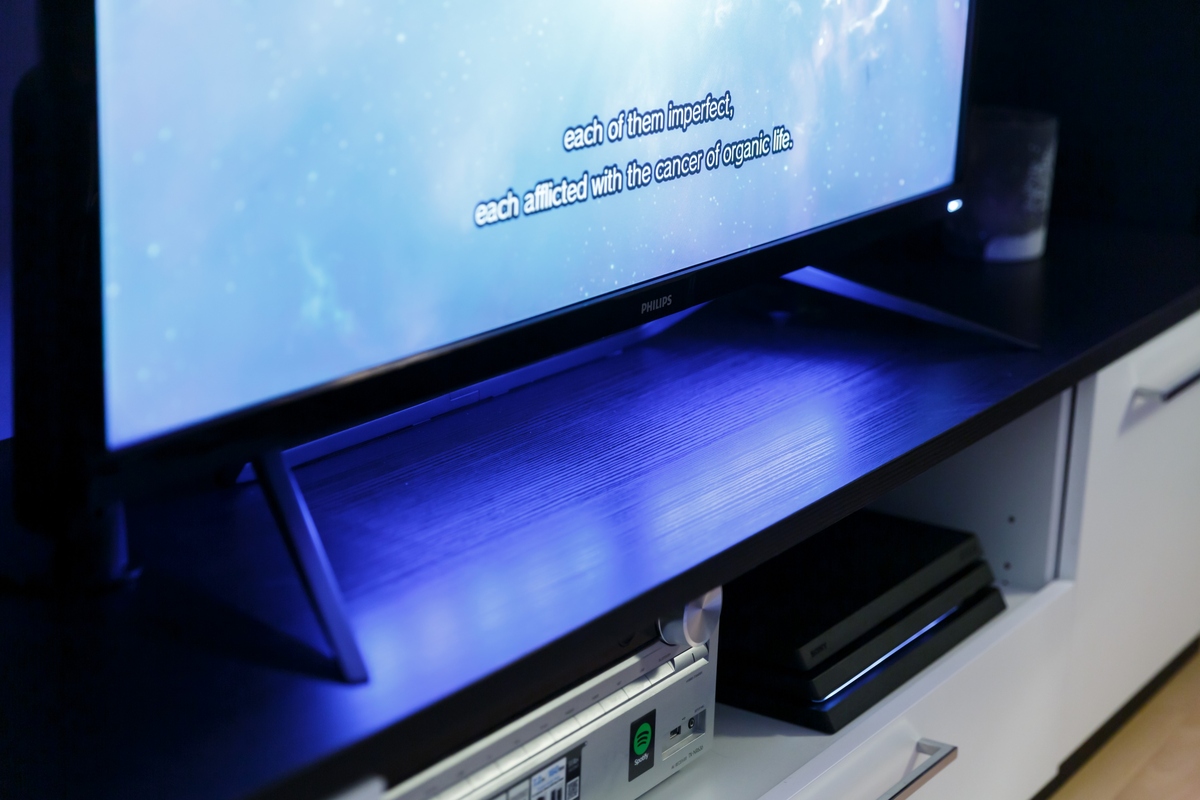
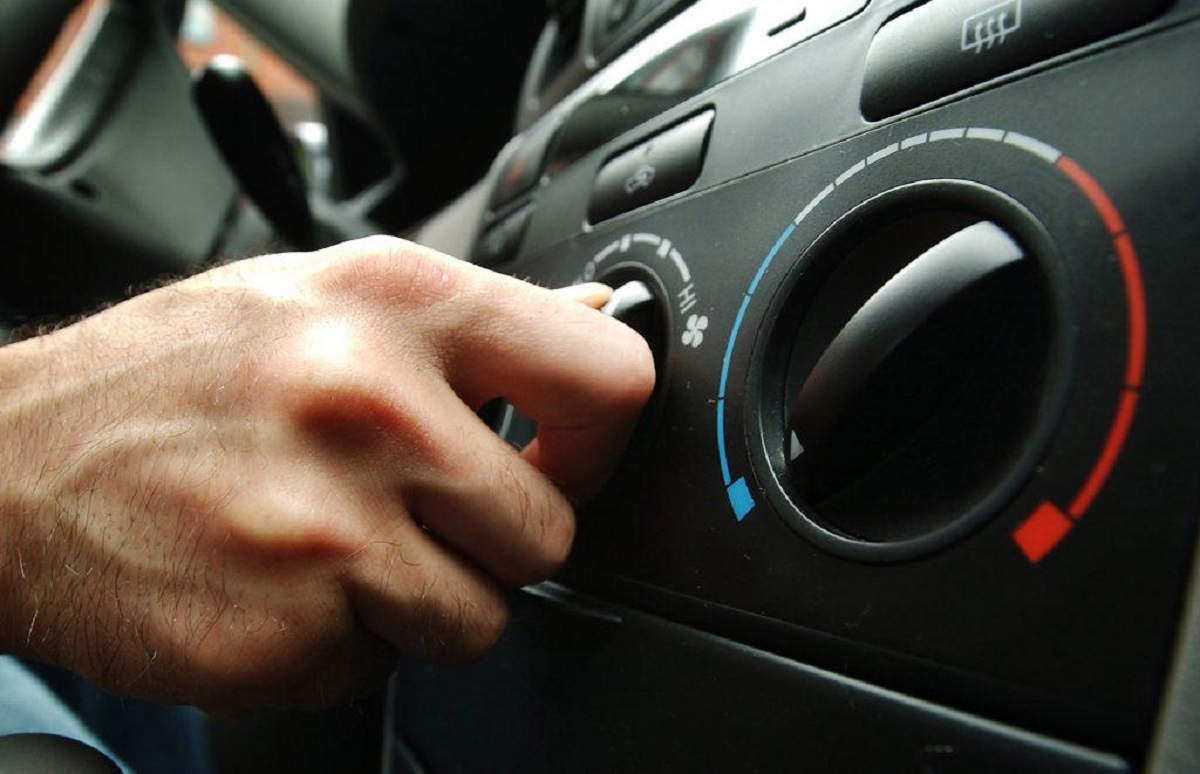

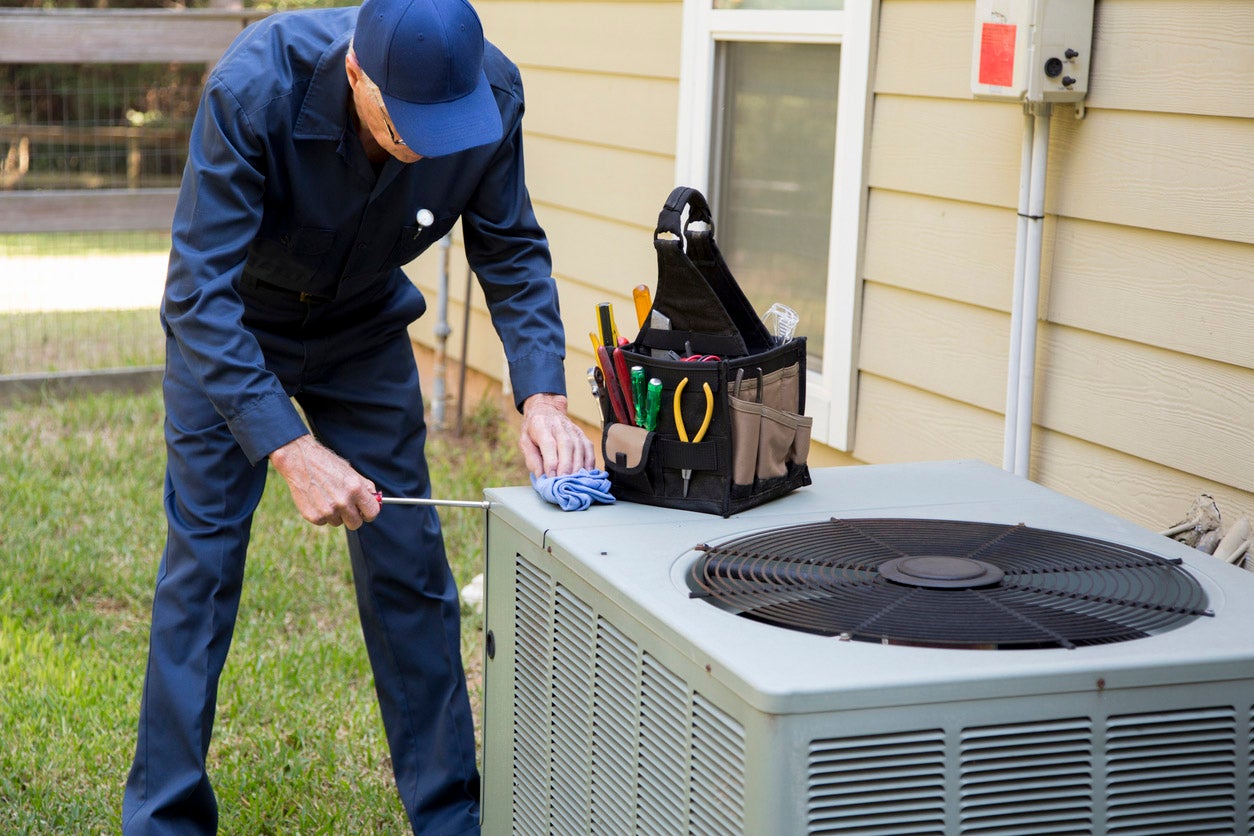

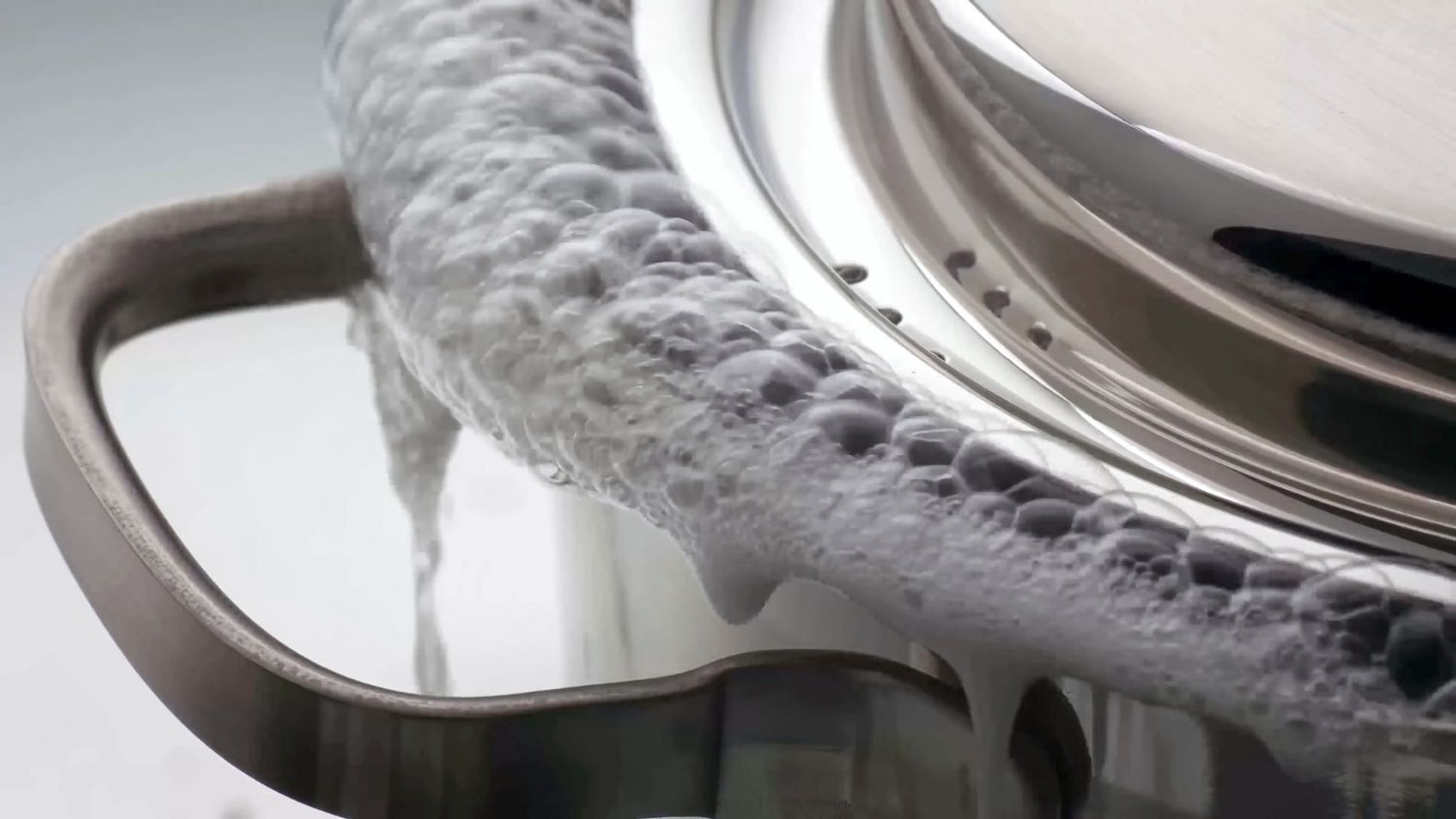
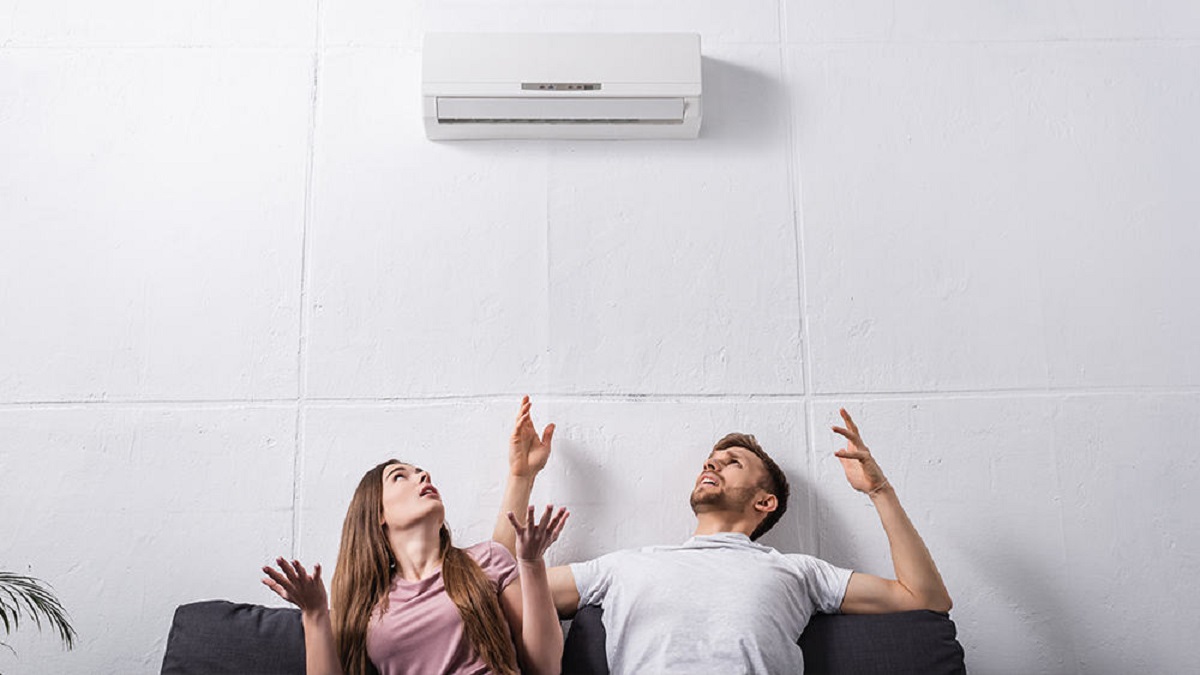
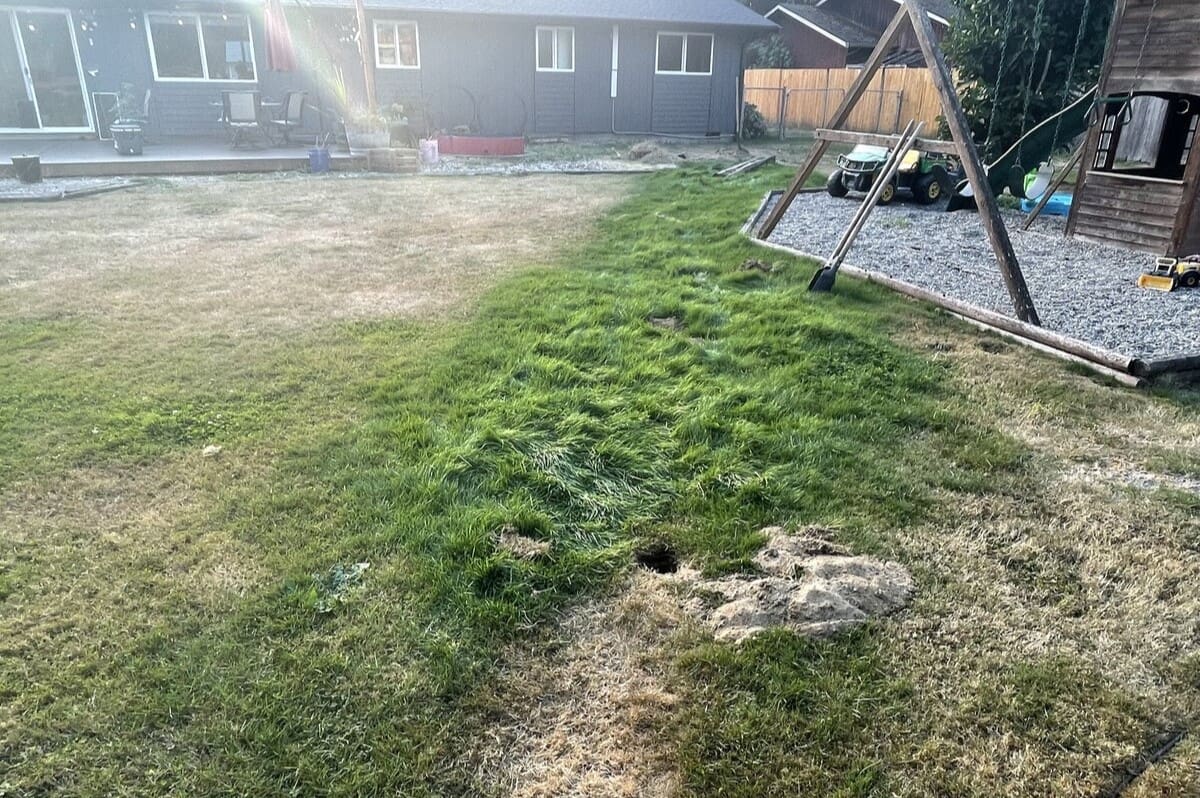

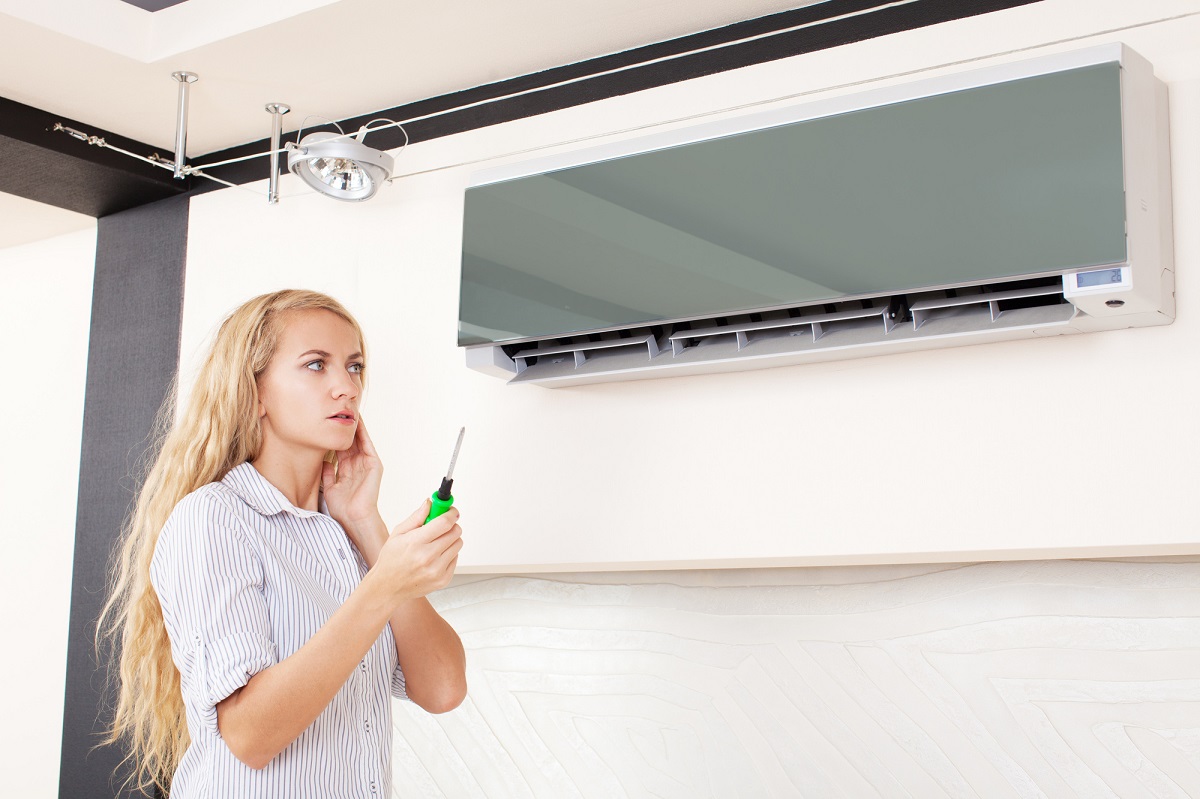
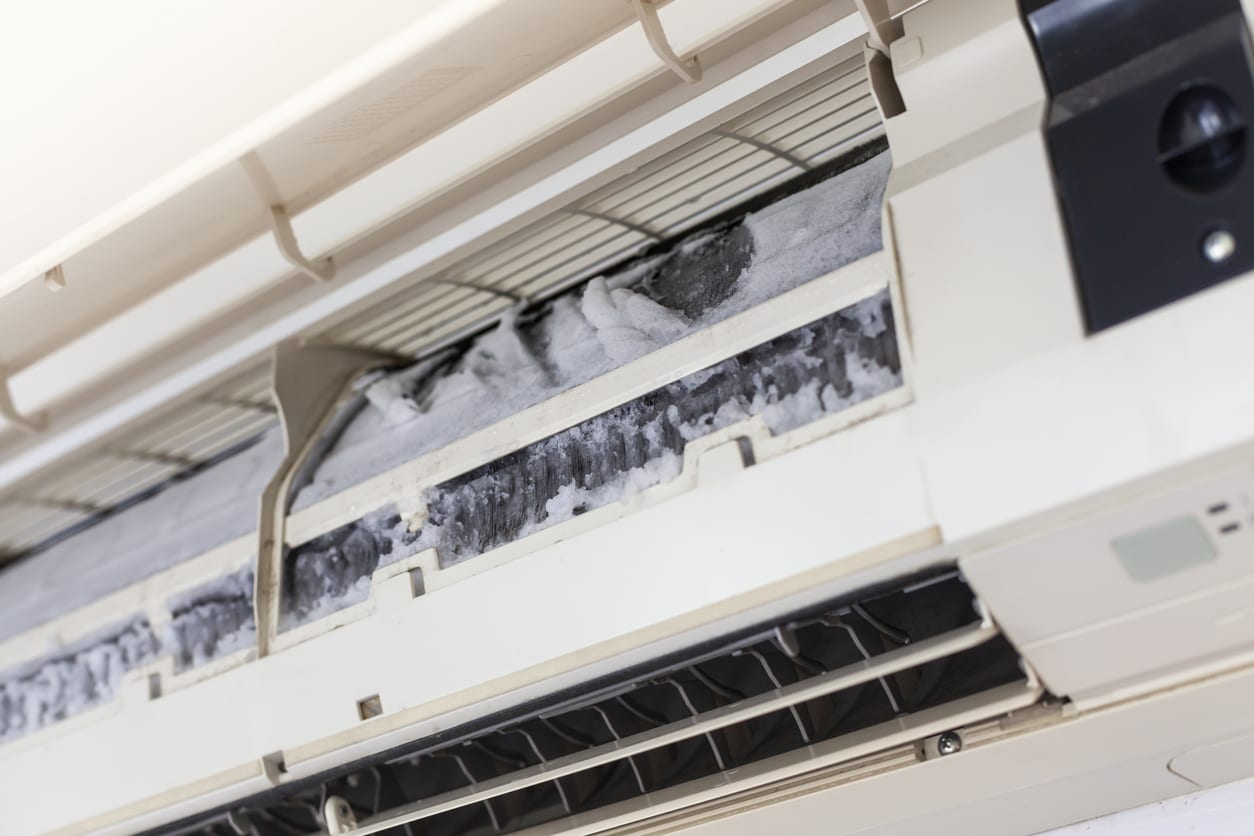

0 thoughts on “Why Is My AC Freezing Over”